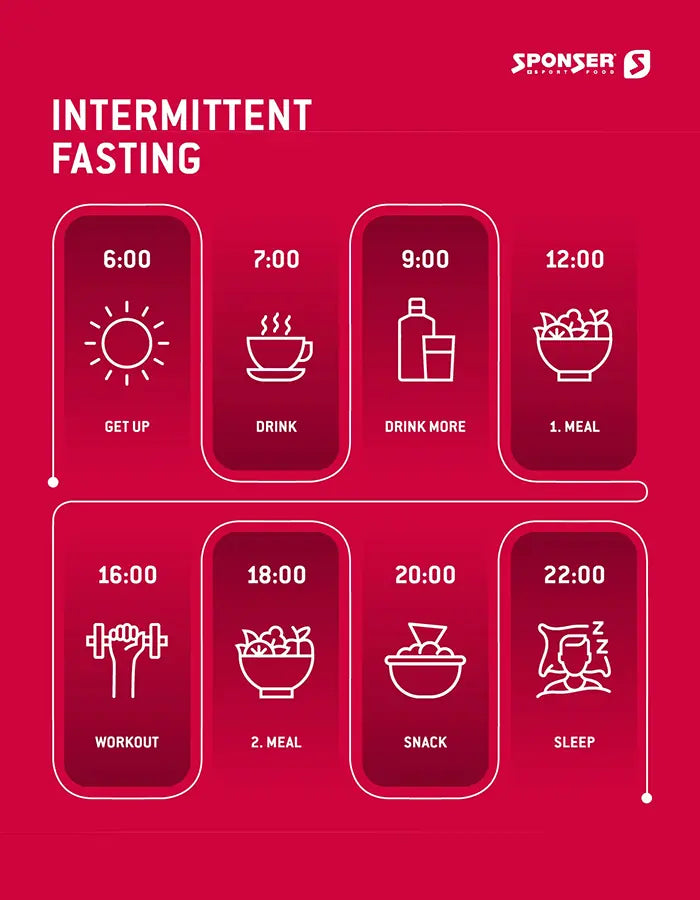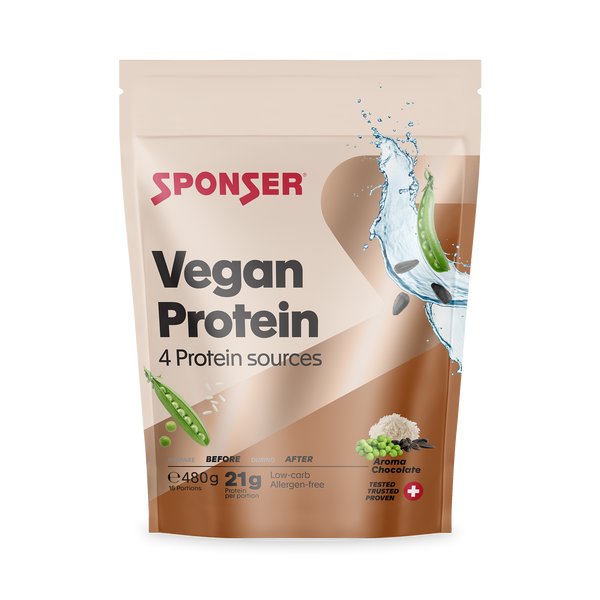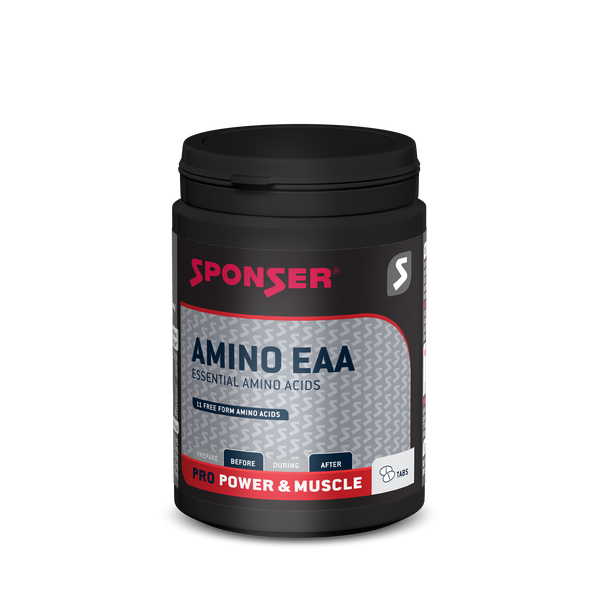
Intermittent fasting / Interval fasting: What is it about?
Currently, «intermittent fasting» (IMF), also known as interval fasting, is experiencing a real boom. IMF describes a dietary rhythm in which the traditional meal intake is interrupted by longer non-eating periods. If our body is continuously supplied with food, there is no need to fall back on reserves and depot fat. On the contrary, excess calories are stored in the body, which can lead to weight gain depending on the individual daily routine (sedentary versus energy-consuming occupation). In this respect, IMF - like any calorie reduction - forces the body to address its reserves for a certain period of time.
What forms of intermittent fasting are there?
IMF is carried out in different variations. Some typical examples, also in combination:
• «16:8» Here the daily food intake is limited to an eight hour’s period, while fasting is maintained for the other 16 hours.
• «5/2» This involves eating as usual on five days, but reducing food intake to about a quarter of the normal amount of calories on two other days of the week.
• «Eat. Stop. Eat.» Abstain from all food for 24 hours on one or two days a week.
• «Alternate Day Fasting» This involves eating only every other day.
• «Warrior» Fasting during the day and eating a large meal in the evening.
• «Dinner-Cancelling» Here, depending on the individual time restrictions, dinner is skipped.
Advantages and benefits: What science says!
Intermittent fasting may have some significant benefits in terms of metabolic health factors. One study investigated the effect of intermittent fasting compared to a classic calorie-restricted diet (Antoni 2018a). The researchers observed significantly greater improvements in blood pressure as well as glucose and lipid metabolism after a meal (C-peptide and triacylglycerol response) in the group that fasted 2/7 days a week. This was observed at a similar weight loss of 5%. Furthermore, in a small pilot study, the same researchers showed that a time-restricted diet can significantly reduce energy intake in overweight subjects who fed ad libitum (no food quantity restriction) (Antoni 2018b). The simple difference between the intervention and control groups was that the former postponed breakfast and preponed dinner during 10 weeks, resulting in a roughly 16:8 pattern. However, highly variable study designs make it very difficult to ascribe clear advantages to IMF over a calorie-restricted diet. Compared to a «classic» calorie-reduced diet, IMF seems not to be significantly more beneficial regarding weight loss.
Where are the limitations?
Although a change to the 16:8 method may seem simple, it can have a significant impact on social life and can be difficult to sustain in the longer term. In the end, the best diet is always the one that can best be followed individually. Whether this is fasting two or three days a week, other forms of intermittent fasting or a continuous, low-calorie diet should depend primarily on individual preferences and constraints within a daily routine. The IMF approach is especially problematic if you run the risk of backsliding on days when energy is reduced by around 75% or overcompensating on «eat as much as you want» days. If that is the case: Hands off interval fasting.
Who benefits?
Anyone who is happy to eat freely every other day and succeeds to maintain an even, slight energy deficit through metabolic and behavioural adjustments, should choose this form of diet. On the other hand, if you can skip breakfast and thus effortlessly reduce your energy intake by 500kcal/day - go for it! Important: Give the biological rhythm about two weeks to adapt.
What should be paid attention to?
• The main driver of successful weight loss is the calorie deficit, which can be achieved with an IMF method or a classical diet. The most important factor is therefore to choose the programme that is easiest to follow.
• In addition, one should integrate some strength training if possible and consume sufficient protein (2.0-2.7 g per kg body weight daily) with food. Increased protein intake will help attenuate muscle loss, which is to some extent an unavoidable side effect of dietary calorie reduction.
• It should also be noted that calorie reduction and weight loss are accompanied by changes in hormone and energy metabolism: In the case of a negative energy balance, the body tries to minimise the energy deficit, i.e. to save energy. From an evolutionary point of view, this is a survival mechanism, which of course counteracts the goal of weight loss and makes it more difficult to achieve (Trexler 2014).
Recommended SPONSER products for intermittent fasting:
LOW CARB PROTEIN SHAKE
Tasty, high-quality protein shake based on milk protein, egg albumin and whey protein. Suitable as a protein and fibre-rich meal for a calorie-reduced diet, especially with a reduced proportion of carbohydrates (low carb). Ideal for supplementing and increasing the protein content of a meal in combination with salad, fruit and vegetables.
MCT OIL
A liquid, tasteless oil made from coconut fat. It is ideally suited in connection with low carb, paleo and ketogenic diets. It is also popular for interval fasting and as an alternative source of energy for endurance sports.
AMINO EAA
The tablets contain a high proportion of leucine and BCAA. The tabs are suitable for strength and endurance athletes who want to limit their protein supply to the essential, and do not want to take in additional calories.
WHEY ISOLATE 94
Ideally suited for the daily protein requirements to build and maintain muscle mass, to promote regeneration and to support weight reduction in the context of a calorie-reduced diet.
Related articles
on » weight loss
shop » figure & shape
goal » healthy lifestyle
goal » weight management
Literature
Antoni et al. (2018a): Intermittent v. continuous energy restriction: Differential effects on postprandial glucose and lipid metabolism following matched weight loss in overweight/obese participants. British Journal Of Nutrition 119(05):507-516 (2018).
Antoni et al. (2018b): A pilot feasibility study exploring the effects of a moderate time-restricted feeding intervention on energy intake, adiposity and metabolic physiology in free-living human subjects. Journal of Nutritional Science, 7, E22.
Trexler et al. (2014): Metabolic adaptation to weight loss: implications for the athlete. J Int Soc Sports Nutr 11, 7 (2014).
Author: Remo Jutzeler
Head R&D SPONSER SPORT FOOD
Ing. Applied Food Sciences UAS
MAS Nutrition & Health ETHZ





















